Common Cold
How to submit an article:
- Registered users can submit any published journal article that has a unique DOI (Digital Object Identifier) name or link to Research Hub.
- For example, you can paste the full DOI link:
https://doi.org/10.1109/5.771073or just the DOI name:10.1109/5.771073into the field above and click submit. - The person who is first to submit a valid article to Research Hub will forever be credited for it, and every article submission earns you +6 Research Points.
Published research studies are articles that present the findings of original research that has undergone a peer-review process and has been made publicly available in scholarly journals, books or other media.

Role of Traditional Chinese Medicine in the Management of Viral Pneumonia
2020 Oct 22 Frontiers in Pharmacology Xi S, Li Y, Yue L, Gong Y, Qian L, Liang T, et al.
Review Article Common Cold, Flu & Viral Infections Common ColdTraditional Chinese medicine has unique advantages in relieving symptoms, shortening treatment time and reducing the development of severe viral pneumonia.

Research into Acupuncture for Respiratory Disease in Japan: A Systematic Review
2018 Dec 12 Acupuncture in Medicine Suzuki, M., Yokoyama, Y., & Yamazaki, H.
Systematic Review Respiratory ConditionsThis article appears to be from 2009, not 2018. —Jinnan C 15 Sep 2021

Effect of Tea Catechins on Influenza Infection and the Common Cold with a Focus on Epidemiological/Clinical Studies
2018 Jul 20 Molecules Furushima D, Ide K, Yamada H
Review Article Green Tea Antiviral Influenza Common ColdTea catechins, found in green tea, may reduce the rates of influenza infection and diminish certain cold symptoms.
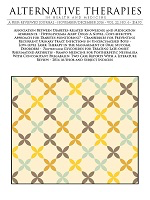
Compound Formulas of Traditional Chinese Medicine for the Common Cold: Systematic Review of Randomized, Placebo-controlled Trials
2015 Nov Alternative Therapies in Health and Medicine Li G, Cai L, Jiang H, Dong S, Fan T, Liu W, et al.
Systematic ReviewCompound formulas of traditional Chinese medicine, compared with placebo, can provide benefits to patients with the common cold, with no serious side effects having been identified in the included trials.
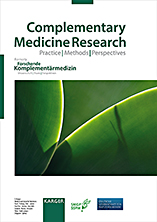
Herbal Medicine for Cough: a Systematic Review and Meta-Analysis
2015 Jan Complementary Medicine Research Wagner L., Cramer H., Klose P., Lauche R., Gass F., Dobos G, et al.
Systematic Review Meta-Analysis Cough Common Cold Chuan Xin LianThere is strong evidence for Andrographis paniculata (Chuan Xin Lian) being significantly superior to placebo in alleviating the frequency and severity of cough symptoms.
Research insights are moderated by the Research Hub team and offer an at-a-glance overview of interesting research findings.

2020 Frontiers in Pharmacology
Traditional Chinese medicine has unique advantages in relieving symptoms, shortening treatment time and reducing the development of severe viral pneumonia.
Review Article Common Cold, Flu & Viral Infections
Role of Traditional Chinese Medicine in the Management of Viral Pneumonia
Xi S, Li Y, Yue L, Gong Y, Qian L, Liang T, et al.

2018 Molecules
Tea catechins, found in green tea, may reduce the rates of influenza infection and diminish certain cold symptoms.
Review Article Antiviral Green Tea Influenza
Effect of Tea Catechins on Influenza Infection and the Common Cold with a Focus on Epidemiological/Clinical Studies
Furushima D, Ide K, Yamada H

2015 Alternative Therapies in Health and Medicine
Compound formulas of traditional Chinese medicine, compared with placebo, can provide benefits to patients with the common cold, with no serious side effects having been identified in the included trials.
Systematic Review
Compound Formulas of Traditional Chinese Medicine for the Common Cold: Systematic Review of Randomized, Placebo-controlled Trials
Li G, Cai L, Jiang H, Dong S, Fan T, Liu W, et al.

2015 Complementary Medicine Research
There is strong evidence for Andrographis paniculata (Chuan Xin Lian) being significantly superior to placebo in alleviating the frequency and severity of cough symptoms.
Systematic Review Chuan Xin Lian Cough
Herbal Medicine for Cough: a Systematic Review and Meta-Analysis
Wagner L., Cramer H., Klose P., Lauche R., Gass F., Dobos G, et al.
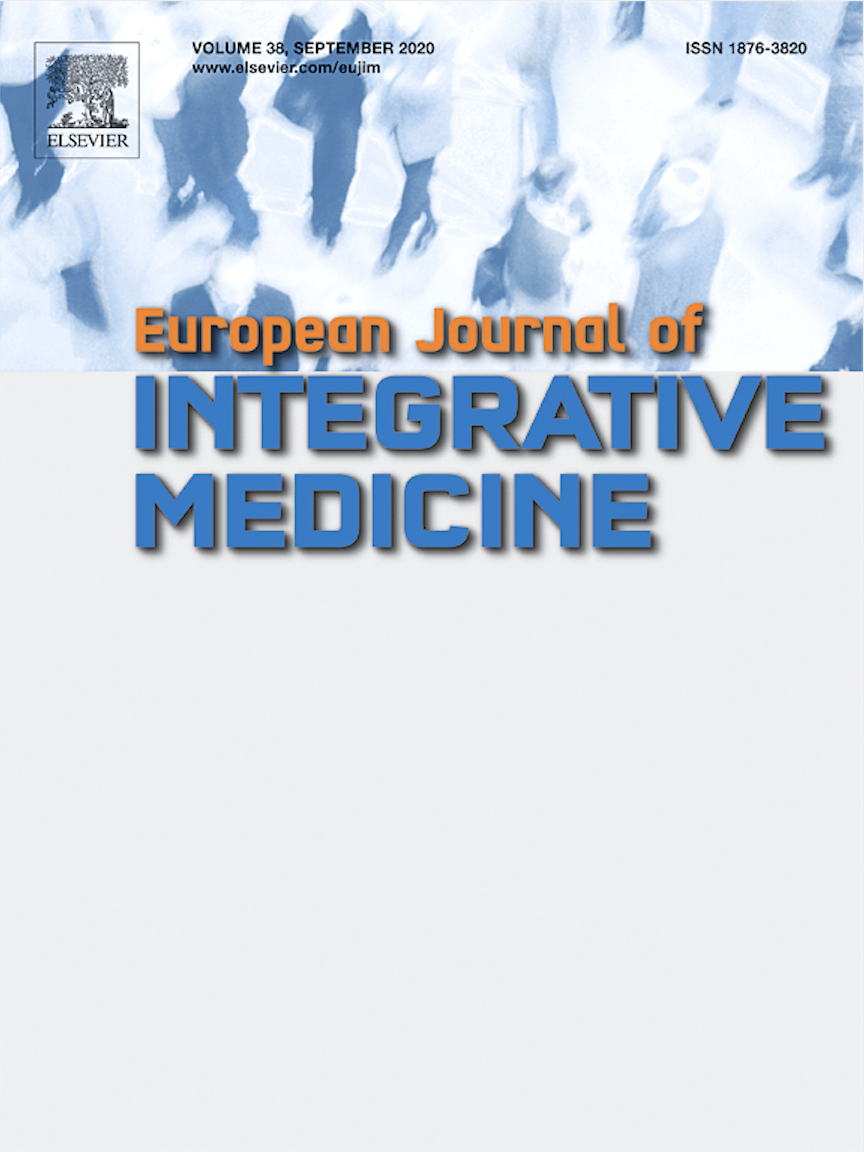
2014 European Journal of Integrative Medicine
Traditional Chinese Medicine (TCM) is regularly used in treating upper respiratory tract infections, particularly for patients (more female patients in database found) with mild symptoms, using commonly preferred prescriptions, i.e Yin Qian San & Ma Xing Shi Gan Tang.
URTI
Traditional Chinese medicine treatments for upper respiratory tract infections/common colds in Taiwan
Yu JS, Ho CH, Hsu YC, Wang JJ, Hsieh CL
Review Articles
Review articles summarise and critically evaluate the current state of research on a specific topic or field by synthesising multiple primary research studies.

Role of Traditional Chinese Medicine in the Management of Viral Pneumonia
2020 Oct 22 Frontiers in Pharmacology Xi S, Li Y, Yue L, Gong Y, Qian L, Liang T, et al.
Review Article Common Cold, Flu & Viral Infections Common ColdTraditional Chinese medicine has unique advantages in relieving symptoms, shortening treatment time and reducing the development of severe viral pneumonia.
Need help with this conclusion — 15 Sep 2021

Research into Acupuncture for Respiratory Disease in Japan: A Systematic Review
2018 Dec 12 Acupuncture in Medicine Suzuki, M., Yokoyama, Y., & Yamazaki, H.
Systematic Review Respiratory ConditionsThis article appears to be from 2009, not 2018. —Jinnan C 15 Sep 2021

Effect of Tea Catechins on Influenza Infection and the Common Cold with a Focus on Epidemiological/Clinical Studies
2018 Jul 20 Molecules Furushima D, Ide K, Yamada H
Review Article Green Tea Antiviral Influenza Common ColdTea catechins, found in green tea, may reduce the rates of influenza infection and diminish certain cold symptoms.

Acupuncture for common cold
2018 Mar Medicine Cheng Y, Gao B, Jin Y, Xu N, Guo T
This protocol study will present the evidence of whether acupuncture therapy is an effective intervention for common cold.
Study Protocol Systematic Review Meta-Analysis Acupuncture Respiratory Conditions
Compound Formulas of Traditional Chinese Medicine for the Common Cold: Systematic Review of Randomized, Placebo-controlled Trials
2015 Nov Alternative Therapies in Health and Medicine Li G, Cai L, Jiang H, Dong S, Fan T, Liu W, et al.
Systematic ReviewCompound formulas of traditional Chinese medicine, compared with placebo, can provide benefits to patients with the common cold, with no serious side effects having been identified in the included trials.
Clinical Trials
Clinical trials are research studies that involve people and are conducted to evaluate the safety and efficacy of new treatments or interventions, such as drugs, medical devices, or behavioural therapies.
Study Protocols
Published study protocols are detailed plans that outline the objectives, methodology, statistical analyses, and organisation of a research study that have been made publicly available for others to review and use as a reference.
Presentation Slides

Review Article
Traditional Chinese medicine has unique advantages in relieving symptoms, shortening treatment time and reducing the development of severe viral pneumonia.
Xi S, Li Y, Yue L, Gong Y, Qian L, Liang T, Ye Y

Review Article
Tea catechins, found in green tea, may reduce the rates of influenza infection and diminish certain cold symptoms.
Furushima D, Ide K, Yamada H

Systematic Review
Compound formulas of traditional Chinese medicine, compared with placebo, can provide benefits to patients with the common cold, with no serious side effects having been identified in the included trials.
Li G, Cai L, Jiang H, Dong S, Fan T, Liu W, Xie L, Mao B.

Systematic Review
There is strong evidence for Andrographis paniculata (Chuan Xin Lian) being significantly superior to placebo in alleviating the frequency and severity of cough symptoms.
Wagner L., Cramer H., Klose P., Lauche R., Gass F., Dobos G, Langhorst J.

Traditional Chinese Medicine (TCM) is regularly used in treating upper respiratory tract infections, particularly for patients (more female patients in database found) with mild symptoms, using commonly preferred prescriptions, i.e Yin Qian San & Ma Xing Shi Gan Tang.
Yu JS, Ho CH, Hsu YC, Wang JJ, Hsieh CL
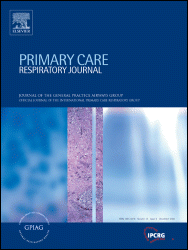
Randomised Controlled Trial
Honey plus coffee, presented as a jamlike paste, emerges as a more effective alternative medicine for persistent post-infectious cough (PPC) compared to systemic steroids, demonstrating significant reduction in cough frequency in a randomized controlled trial.
Raeessi MA, Aslani J, Raeessi N, Gharaie H, Zarchi AAK, Raeessi F
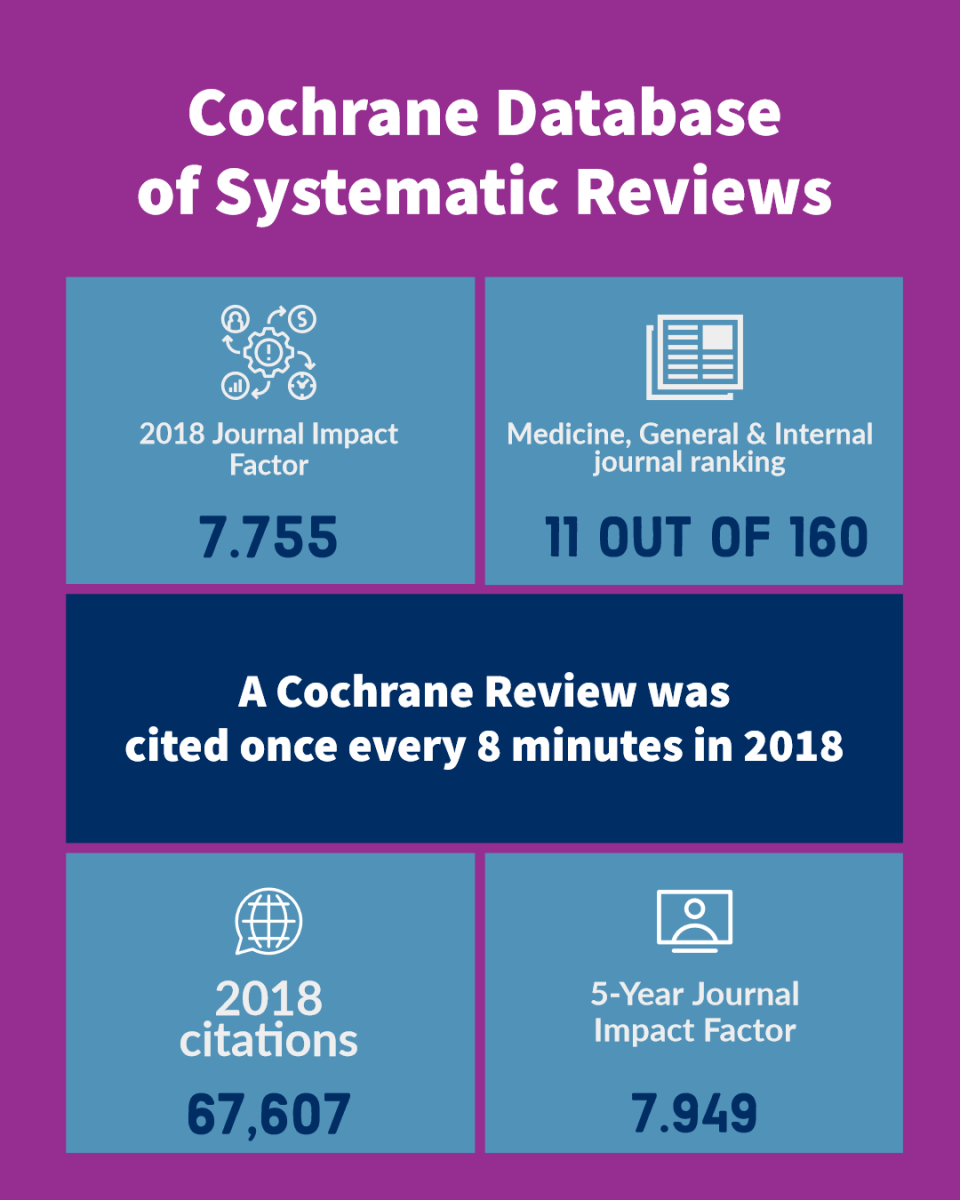
Systematic Review
Most Chinese medical herbs in the included studies showed similar effects to antiviral drugs in preventing or treating influenza.
Jiang L, Deng L, Wu T.
Executive Summary
Write an executive summary in the form of a blog article on the topic of "Research into Chinese medicine treatment for Common Cold" summarising the research below and using language that can be easily understood by patients and avoiding medical jargon using a professional and caring tone of voice.
Write an executive summary in the form of a blog article on the topic of "Researched Chinese medicine treatments for Common Cold" summarising the research below in an objective and easy to understand way, and using language that can be easily understood by patients. Group the article into Chinese medicine treatments first, followed by nutrition and other treatments. Avoid using medical jargon and use a professional and caring tone of voice.
Write me a concise but easy to understand executive summary on the topic of "Chinese medicine treatments for Common Cold" based on the following research that I will give you. Your summary should be 2 paragraphs long in Australian English spelling and include references to the studies.
A Review Article published in 2020 in the journal Frontiers in Pharmacology found that Traditional Chinese medicine has unique advantages in relieving symptoms, shortening treatment time and reducing the development of severe viral pneumonia. In the treatment of viral pneumonia through syndrome differentiation, traditional Chinese medicine (TCM) plays a variety of roles in inhibiting the proliferation, replication, adsorption and membrane penetration of the virus, promoting the expression of interferon in vivo, inhibiting inflammatory reaction, enhancing immunity, etc., which is one of the theoretical bases for the clinical application of TCM in the prevention and treatment of viral pneumonia. Traditional Chinese herbal medicine and compound medicinals are characterized by multi-component, multi-pathway and multi-pathway complex networks. Therefore, drug resistance is relatively rare in the clinical practice of TCM. Moreover, in the process of diagnosis and treatment of TCM, treatment based on differentiation of symptoms and signs, especially treatment based on classification of symptoms and signs, can best reflect the overall concept of TCM. TCM has precise therapeutic activity and less adverse reactions. Accumulating evidence has demonstrated the competent therapeutic effects of TCM against viral pneumonia with a prominent safety profile.
A Review Article published in 2018 in the journal Molecules found that Tea catechins, found in green tea, may reduce the rates of influenza infection and diminish certain cold symptoms. The research methodology started with interpreting several experimental studies which reported that tea catechins can inhibit influenza viral adsorption and suppress replication and neuraminidase activity. These catechins were also found effective against some common cold viruses and helped to enhance immunity against such viral infections. Additionally, epidemiological studies conducted since the late 1990s were examined which suggested that regular consumption of green tea may decrease influenza infection rates and some cold symptoms, and gargling with tea catechin could potentially protect against the development of influenza infection. For the discussion of results, the studies collectively showed that tea catechins have potential antiviral activity against influenza and some cold viruses. Although clinical evidence supporting these effects remained unconclusive, the review showed promising trends. The consumption of green tea and gargling with tea catechins could lead to potentially decreased rates of influenza infection and lessened cold symptoms according to the analyzed epidemiological studies.
A Systematic Review published in 2015 in the journal Alternative Therapies in Health and Medicine found that Compound formulas of traditional Chinese medicine, compared with placebo, can provide benefits to patients with the common cold, with no serious side effects having been identified in the included trials. A total of 6 randomized, double-blind, placebo-controlled trials involving 1502 participants were included. Most trials had a low risk of bias. Five were conducted in mainland China and 1 in Hong Kong; 5 were multicenter clinical trials and 1 was a single-center trial; 4 were published in Chinese and 2 were published in English. Compound formulas of TCM were superior to placebos in reducing disease symptoms, inducing recovery from a TCM syndrome, and increasing quality of life. In addition, the formulas were superior in shortening the duration of the main symptoms, the amount of time for a decline in temperature of at least 0.5°C to occur, and the duration of any fever. The team did not perform a summary meta-analysis due to clinical heterogeneity. No serious adverse event (AE) occurred in either the treatment or the control groups. This systematic review indicated that compound formulas of TCM, compared with placebo, can provide benefits to patients with the common cold, with no serious side effects having been identified in the included trials. However, due to the small number of included studies and of participants and the unclear risk of some biases in the included studies, more high-quality, large-scale RCTs are still warranted to clarify fully the effectiveness and safety of compound formulas of TCM in treating the common cold.
A Systematic Review published in 2015 in the journal Complementary Medicine Research found that There is strong evidence for Andrographis paniculata (Chuan Xin Lian) being significantly superior to placebo in alleviating the frequency and severity of cough symptoms. Most studies showed significant improvements in active treatment group patients with cough-related symptoms. The study by Narimanian et al. showed particularly good results for mucociliary clearance. The sole exception was the trial conducted by Melchior et al.; a pilot study with relatively few patients. All studies reported small numbers of mild adverse effects, including nausea, emesis, vertigo, skin rash and diarrhea, but none required further treatment. Four trials were assessed quantitatively with regard to changes in the frequency of patients' cough symptoms. In these studies, meta-analysis showed strong evidence that A. paniculata reduced this frequency, although significant heterogeneity was found in the original study results. These 5 trials were also compared with regard to changes in the severity of patients' cough symptoms. The results showed strong evidence for the benefit of phytotherapeutics in this area, although significant heterogeneity was found here, too. These analyses show that A. paniculata is effective in reducing the frequency and severity of patients' cough symptoms.
A published in 2014 in the journal European Journal of Integrative Medicine found that Traditional Chinese Medicine (TCM) is regularly used in treating upper respiratory tract infections, particularly for patients (more female patients in database found) with mild symptoms, using commonly preferred prescriptions, i.e Yin Qian San & Ma Xing Shi Gan Tang. In this study, data from the National Health Insurance Research Database was analyzed with particular attention to the treatments used for upper respiratory tract infections (URTIs). The International Classification of Diseases, Ninth Revision, Clinical Modification diagnoses codes for Taiwan in 2009, were used to identify these treatments. Techniques of data mining and association rules were deployed to examine co-prescriptions of TCM for patients with URTIs. Discussion of the results shows that out of a sample of 472,005 patients who sought treatment for URTIs, approximately 10 percent were treated with TCM and among these, over three-fifths were female. A majority - 79 percent - presented with an acute common cold. The study also noted that certain prescriptions, namely Yin-Qiao-San and Ma-Xing-Gan-Shi-Tang, were most commonly combined for patients with URTIs. The insight showed that patients were more likely to request TCM treatment if their symptoms were mild and they were women. Chinese medicine doctors treating URTIs generally adhered to TCM theory.
A Randomised Controlled Trial published in 2013 in the journal Primary Care Respiratory Journal found that Honey plus coffee, presented as a jamlike paste, emerges as a more effective alternative medicine for persistent post-infectious cough (PPC) compared to systemic steroids, demonstrating significant reduction in cough frequency in a randomized controlled trial. The study, conducted at Baqiyatallah University Hospital, Tehran, Iran, involved 97 adults with PPC for over three weeks. Participants were assigned to three groups receiving honey plus coffee, systemic steroids, or guaifenesin. They consumed their assigned product dissolved in warm water every eight hours for a week. Cough severity was assessed before and after treatment using a validated visual analogue cough questionnaire. Honey plus coffee (HC) group exhibited a remarkable decrease in mean cough frequency from 2.9 to 0.2. In contrast, the steroid group (S) showed improvement but with a less significant reduction (3.0 to 2.4), while the control group (C) exhibited no significant change (2.8 to 2.7). Analysis of variance revealed a substantial difference between HC and S groups, establishing honey plus coffee as a promising alternative for PPC treatment.
A Systematic Review published in 2013 in the journal Cochrane Database of Systematic Reviews found that Most Chinese medical herbs in the included studies showed similar effects to antiviral drugs in preventing or treating influenza. This updated review assessed the therapeutic effects and safety of Chinese medicinal herbs as an alternative and adjunctive therapy to other commonly used drugs for influenza. Eighteen studies involving 2521 participants were included in the review. 'Ganmao' capsules were found to be more effective than amantadine in decreasing influenza symptoms and aiding recovery in one study (in which adverse reactions were mentioned in the amantadine group although no data were reported). There were no significant differences between 'E Shu You' and ribavirin in treating influenza, nor in the occurrence of adverse reactions. The remaining 17 Chinese herbal trials showed a similar effect to antiviral drugs in preventing or treating influenza. However, since these included studies were of poor quality, the evidence does not support or reject the use of any Chinese herbal preparations for influenza. High‐quality trials are required.
Moderation Tools
Topic
Sign In
Users not signed in are limited to viewing the 5 most recent items of content.
Need help with this conclusion — 15 Sep 2021